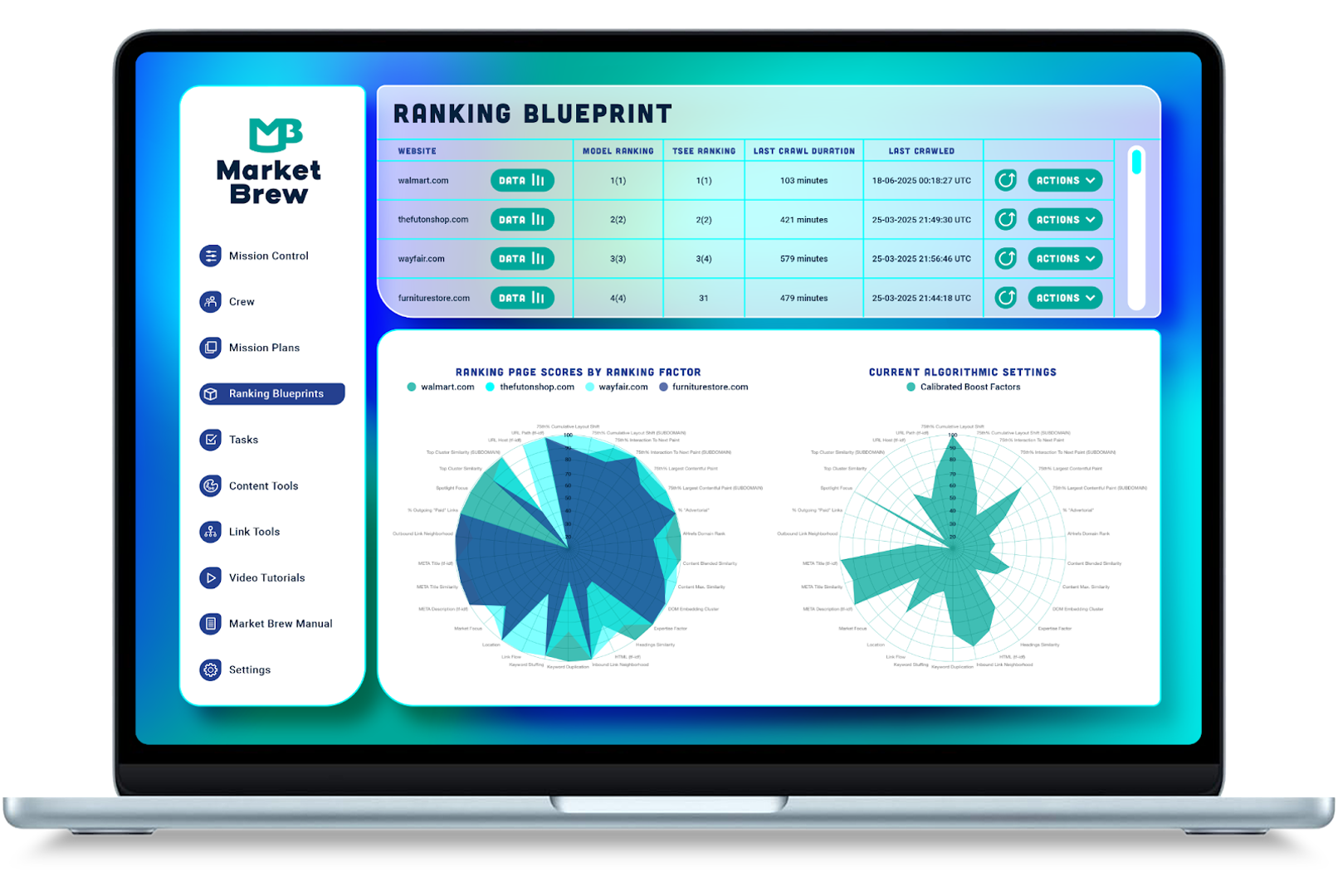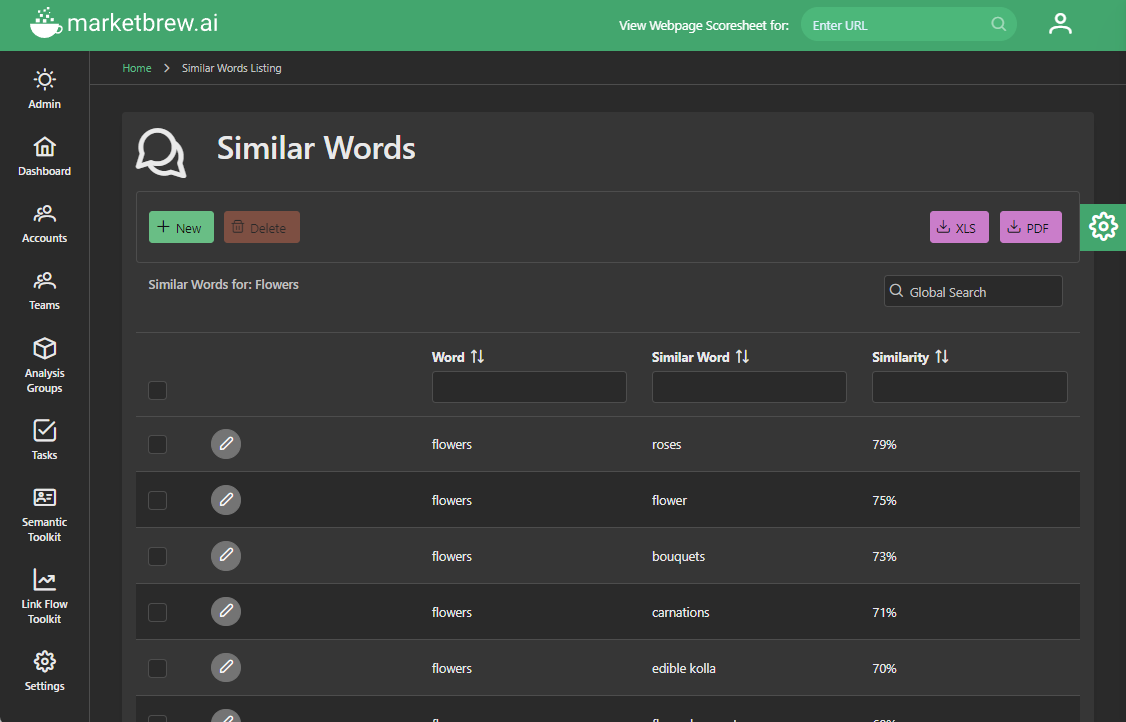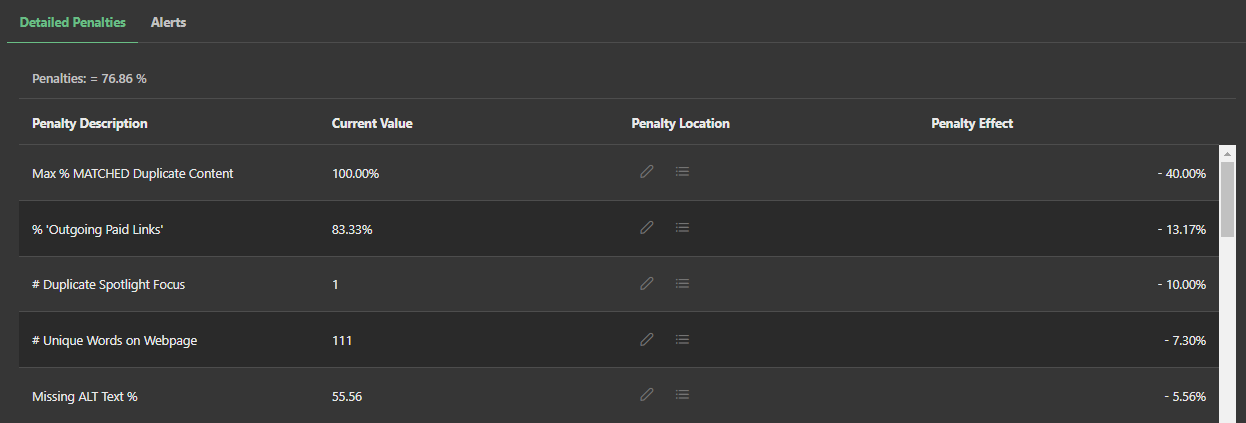Keyword Optimization in SEO: The Evolving Role of Keywords in Search Engine Algorithms
In recent years, there has been a significant shift in the way search engines evaluate and rank websites. The traditional model of keyword-based algorithms has given way to more sophisticated and nuanced approaches that take into account a wide range of factors.
However, keyword optimization remains an essential aspect of search engine optimization (SEO) and is critical to achieving high visibility and organic search engine rankings.
This article provides an in-depth overview of the evolving role of keywords in search engine algorithms, including the latest trends and best practices for keyword optimization in SEO.
Keywords have long been considered an essential aspect of search engine optimization (SEO). In the early days of the internet, search engines relied heavily on keyword-based algorithms to evaluate and rank websites based on the presence and density of keywords on a page. This approach was effective for the most part, but it had its limitations. For example, it could be gamed by website owners who used keyword stuffing and other tactics to artificially inflate their search engine rankings.
Over time, search engines have become more sophisticated and have adopted a more holistic approach to ranking websites. Today, search engines use a variety of factors, including the quality and relevance of content, user engagement, and external signals, to determine the ranking of a website. This means that keywords are no longer the sole factor in determining a website's search engine ranking. However, they are still an important part of the puzzle, and keyword optimization remains an essential aspect of SEO.
The Importance of Keyword Research and Analysis in SEO
Keyword research and analysis is a critical first step in the SEO process. It involves identifying the keywords and phrases that are most relevant to a website's content and target audience.
Keyword research can be done using a variety of tools and techniques, including keyword planning tools, competitor analysis, and customer surveys.
The goal of keyword research is to identify the keywords that have the highest search volume and relevance to a website's content, as well as those that have low competition.
For example, if you own a restaurant in New York City, you might conduct keyword research to identify the most popular keywords and phrases related to your business, such as "New York City restaurants," "best restaurants in NYC," and "NYC dining." By understanding which keywords are most popular and relevant to your business, you can create content and meta-data that is optimized for these keywords and improve your search engine ranking.
Keyword Optimization Techniques and Strategies
Once the most relevant keywords have been identified, the next step is to optimize a website's content and meta-data to include these keywords. This process is known as keyword optimization, and it involves a variety of techniques and strategies, including:
- Using keywords in page titles and meta-descriptions: Page titles and meta-descriptions are the first thing users see when they search for a specific keyword on a search engine. They are also used by search engines to understand the content and relevance of a page. Therefore, it is essential to include keywords in these elements to improve a page's search engine ranking. For example, a page about New York City restaurants might have the title "Top Restaurants in NYC: Find the Best Dining Options in the City" and the meta-description "Looking for the best restaurants in NYC? Check out our curated list of the top dining options in the city, from trendy bistros to Michelin-starred establishments."
- Incorporating keywords into the body of a page's content: In addition to page titles and meta-descriptions, keywords should also be incorporated into the body of a page's content. This can be done naturally by including the keywords in the text, but care should be taken to avoid keyword stuffing. For example, a page about the best restaurants in NYC might include the keywords "New York City restaurants," "NYC dining," and "top restaurants in NYC" throughout the text.
- Creating keyword-rich URLs and internal linking structures: URLs and internal linking structures are another important aspect of keyword optimization. URLs should be concise and descriptive, and they should include the main keyword or phrase for the page. For example, the URL for a page about the best restaurants in NYC might be example.com/best-restaurant as it should also include keywords, as this helps search engines understand the relationships between different pages on a website and improve the website's overall search engine ranking.
- Using keyword variations and synonyms to avoid keyword stuffing: Keyword stuffing is a tactic used by some website owners to try and artificially inflate their search engine rankings. It involves repeating the same keyword or phrase over and over again on a page, which can be detected by search engines and result in a penalty. To avoid keyword stuffing, it is important to use variations and synonyms of the main keyword or phrase. For example, instead of repeating the phrase "New York City restaurants" multiple times on a page, you might use variations such as "NYC restaurants" or "dining options in the city."
The Impact of Search Engine Updates and Algorithm Changes on Keyword Optimization
Over the years, search engines have made numerous updates and changes to their algorithms, which have had a significant impact on keyword optimization.
For example, Google's Panda update, which was released in 2011, targeted websites with low-quality or spammy content and penalized them in the search engine rankings. This update emphasized the importance of creating high-quality, relevant content that satisfies the needs of users, rather than simply trying to game the system with keyword stuffing.
Another significant update was Google's Hummingbird algorithm, which was released in 2013 and focused on the meaning and context of keywords, rather than just the presence of specific words on a page. This algorithm was designed to provide more relevant search results by understanding the intent behind a user's search query, rather than just matching the query to individual keywords.
These updates and changes have had a major impact on keyword optimization, and it is important for website owners to stay up-to-date with the latest trends and best practices. This means conducting regular keyword research and analysis, and adapting to the changing needs of search engines and users.
The Future of Keyword Optimization in SEO
The role of keywords in SEO is constantly evolving, and it is likely that search engines will continue to refine and improve their algorithms to provide the best possible results for users.
One of the biggest trends in the world of search engines is the growing use of artificial intelligence (AI) and machine learning. These technologies are being used to improve the accuracy and relevance of search results, and they are likely to have a major impact on keyword optimization in the future.
Another trend that is gaining momentum is the increasing use of voice search. As more and more people use voice assistants such as Amazon's Alexa and Google Assistant to search the web, keywords are becoming less important and natural language is becoming more important. This means that website owners need to focus on creating content that is easy to understand and use language that is natural and conversational.
Despite these changes, keyword optimization will remain an essential aspect of SEO. Keywords are still an important factor in search engine algorithms, and they will continue to play a role in determining a website's search engine ranking. In addition, keyword research and analysis will continue to be an important part of the SEO process, as it helps website owners understand the needs and interests of their target audience.
In conclusion, the role of keywords in SEO is evolving, but they are still an essential aspect of search engine optimization. Keyword research and analysis are critical to identifying the most relevant keywords for a website, and keyword optimization techniques and strategies can help improve a website's search engine ranking. As search engines continue to evolve and improve their algorithms, it will be important for website owners to stay up-to-date with the latest trends and best practices for keyword optimization in SEO.
The Shift From Keywords to Entities in SEO
In the world of SEO, there has been a shift in recent years from a focus on keywords to a focus on entities. This change has been driven by advancements in technology and a shift in how search engines process and understand the content on websites.
Traditionally, SEO strategies have revolved around finding the right keywords to include in content in order to rank higher in search engine results pages (SERPs). These keywords were often chosen based on their popularity and relevance to a particular topic, with the goal of improving a website’s ranking for those keywords.
However, this approach has become less effective over time as search engines have become more sophisticated in their ability to understand and interpret the content on websites. As a result, keyword stuffing – the practice of cramming a large number of keywords into content in an attempt to improve ranking – has become less effective, and can even be detrimental to a website’s ranking.
Instead, search engines now place a greater emphasis on understanding the context and meaning of the content on a website, rather than just the keywords themselves. This has led to the rise of entity-based SEO, which focuses on identifying and optimizing the entities – or concepts – that are mentioned in a website’s content.
Entities can be people, places, organizations, products, or any other concept that is relevant to a particular topic. By identifying and optimizing these entities through processes like text classification, websites can improve their ranking in search engine results, as search engines are better able to understand and interpret the content on the website.
One key advantage of entity-based SEO is that it allows for a more natural and user-friendly approach to content creation. Rather than focusing on cramming keywords into content, entity-based SEO allows for a more conversational and engaging tone, which can improve user experience and engagement.
Another advantage is that entity-based SEO can help improve a website’s ranking for a broader range of keywords and phrases. By optimizing entities, a website can rank higher for a variety of related keywords, rather than just a few specific keywords. This can lead to increased traffic and engagement from a wider audience.
However, implementing an entity-based SEO strategy can be challenging, as it requires a deep understanding of the entities that are relevant to a particular topic and the ability to optimize them effectively. This can require the use of specialized tools and technologies, as well as a thorough understanding of search engine algorithms and best practices.
Despite these challenges, the shift from keywords to entities in SEO is an important one, as it allows for a more sophisticated and effective approach to improving a website’s ranking in search engine results. By focusing on entities, rather than just keywords, websites can improve their ranking, increase traffic, and engage a wider audience. Keyword Algorithms in Market Brew
Keyword Algorithms in Market Brew
Market Brew's keyword algorithms are designed from over 10 years of regression testing search engine models.
One of the highlights of the keyword algorithms is the Market Focus algorithm. Market Focus combines the contents on a page with the citation / link structure around that page, to design a basket of three and four word shingles.
This Market Focus Basket is attached to each page inside of the scored data so Market Brew can evaluate what that page is about, from a search engine's perspective.

The Market Focus algorithm begins by eliminating all of the stop words from the content. Then it performs a modern keyword density calculation to formulate a basket of three and four word phrases that it found on the page.
Because Market Brew is a real search engine, it then is able to tap its advanced link graph by calculating an Associated Link Flow value for each of its discovered incoming anchor text words. These words are Porter Stemmed, which allows the search engine to match every conjugation that it finds.
Whenever one of these anchor text words is found in the three or four word shingles on the page, that shingle is boosted by the amount / weight of the Associated Link Flow value, resulting in a Market Focus basket of phrases that the search engine thinks the content is about.
The Market Focus algorithm is one of many semantic algorithms that is included in each search engine model. Market Brew's Particle Swarm Optimization, a genetic algorithm that attempts to find the bias / weight settings of each algorithm in the model, is then used to determine if the Market Focus algorithm is important for that SERP.

The Market Focus algorithm continues to find high importance in many search engine models. However, entity-based algorithms like the Spotlight Focus algorithm have started to become more important, and continue to do so as Google transitions to "things not strings".
Another prominent keyword-based feature in Market Brew is the Similar Words system, which implements word embeddings.

The Similar Words system attempts to inject other nearby words that are often used in conjunction with the target keywords.
These relationships can transcend into entity-based approaches, as the related or similar word is often connected via a knowledge graph.
Another use of the keyword-based approach is the duplicate content algorithm. Market Brew is able to correlate pairs of pages within a site to show the content overlap. Pages with high correlation, typically above 40%, often are associated with thin content spam penalties.
These penalties can be avoided by visiting the Webpage Scorecard screens to investigate if a page is potentially being penalized or not.

For instance, the page above has 100% duplicate content with another page in the site. By clicking on the Penalty Location, users can see exactly what the duplicate content situation is.
Keyword algorithms are involved with many aspects, even link scoring, and continue to be one of the most critical components of a search engine model, even in the presence of newer entity-based algorithms.
With Market Brew, you will know exactly how important these keyword algorithms are, what to do about penalties when they arise, and how to efficiently communicate to a search engine what your landing page is about.
Ready to Take Control of Your SEO?
See how Market Brew's predictive SEO models and expert team can unlock new opportunities for your site. Get tailored insights on how we can help your business rise above the competition.
Schedule a demonstration today via our Menu Button and Contact Form to discover how we engineer SEO success.
You may also like
Guides & Videos
Core Web Vitals Impact on SEO
Guides & Videos
White Hat Strategies For SEO
Guides & Videos


